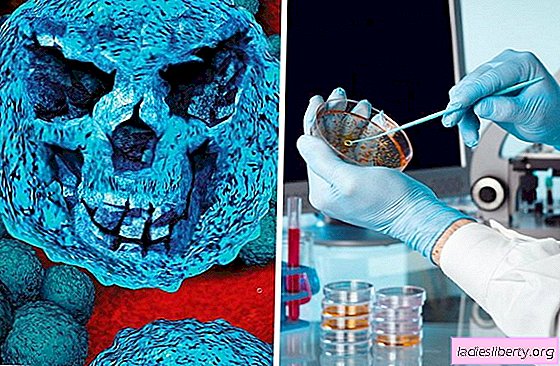
Very serious concern of doctors is caused by the so-called superbacteria - multi-resistant microorganisms resistant to the effects of habitual antibiotics.
Substances from the class of arylomycin
According to Nature magazine, Genentech (USA) has developed a super-powerful antibiotic that can stop even the most "harmful" bacteria. A group of specialists led by Hans Christian Graham received stunning results in the framework of the G0775 project: substances from the arylomycin class block the enzymes necessary for the reproduction of most bacteria.
Microorganisms are divided into gram-positive and gram-negative, which differ in protective membranes and in response to antibiotics. On the surface of the membranes is peptidoglycan, vulnerable to antibacterial drugs.
The effectiveness of new antibiotics is impressive!
The obtained G0775 molecules have increased permeability, which is confirmed by tests with a strain of Klebsiella Pneumoniae, which is resistant to 13 types of antibiotics.
Using methods of medical chemistry, Genentech modified the structure of arylomycin so that the drug could penetrate through the bacterial membrane to the signal peptidase and stop the spread of infection. This is a fundamental discovery, since all antibiotics over the past 20-30 years simply copied each other with minor changes.
Female opinion: the main problem of antibiotics is that microorganisms constantly mutate and “adapt” to new drugs. It is very difficult for scientists to work ahead of schedule, since no one knows which strains will "lead" in the near future.
And then the clumsy mechanism of clinical testing and implementation in pharmacy chains is turned on. Well, it prevents the habit of millions of people to self-medicate and acquire the usual, "proven" drugs. We advise you to be more attentive to the recommendations of doctors and strengthen immunity!











